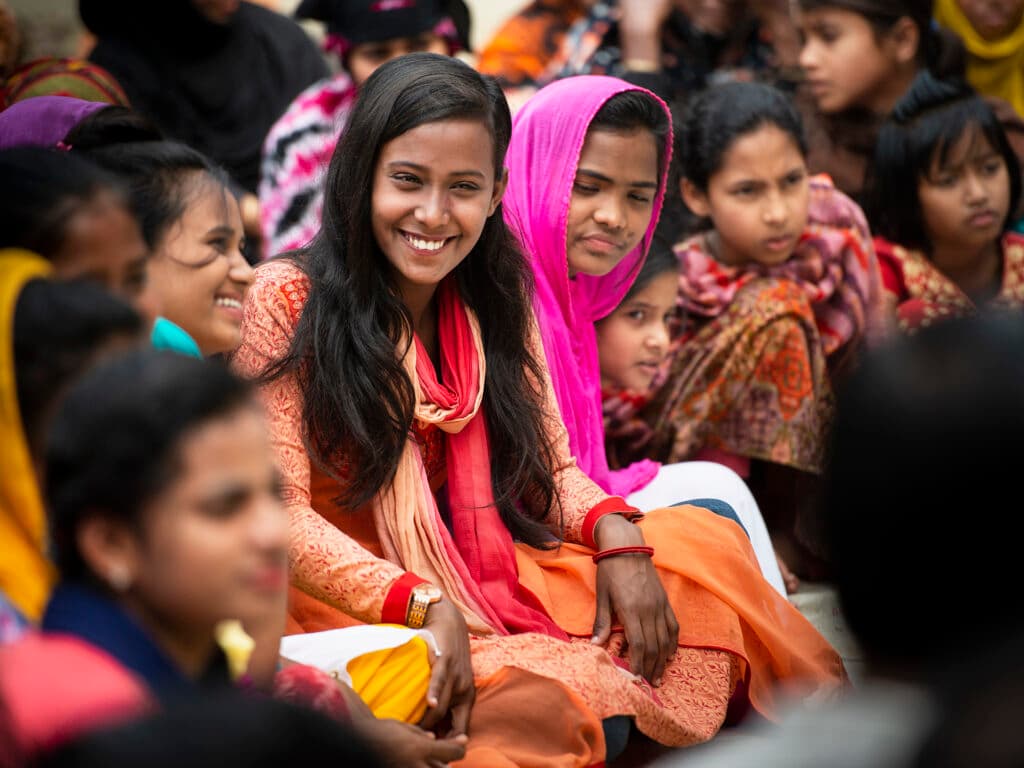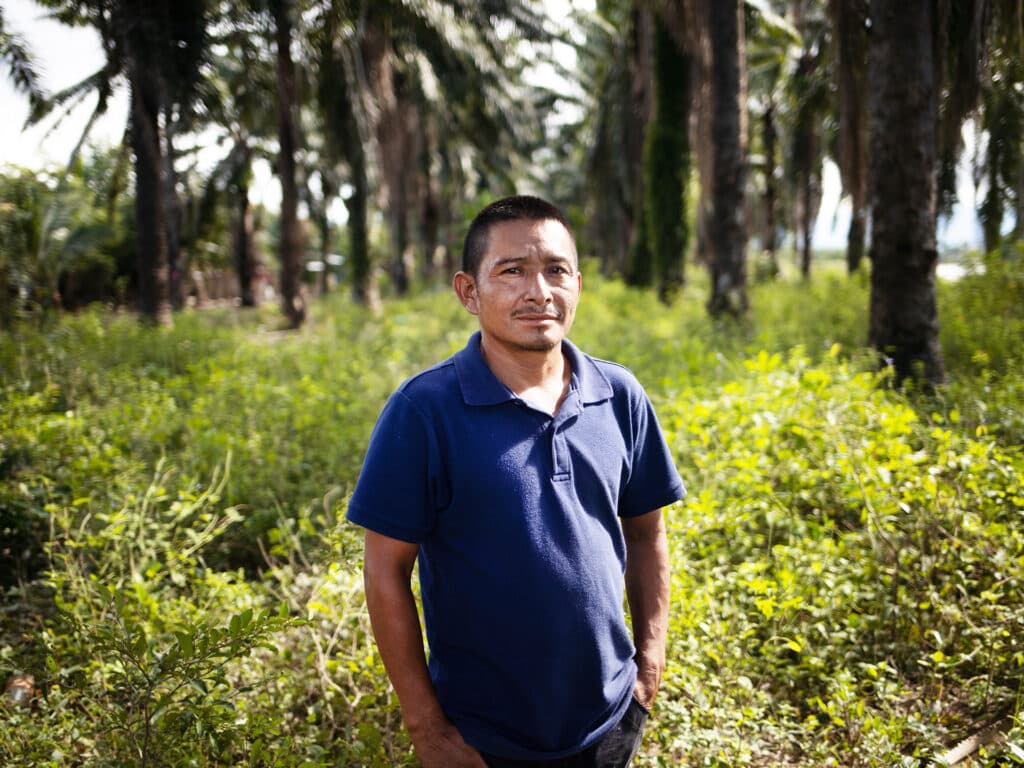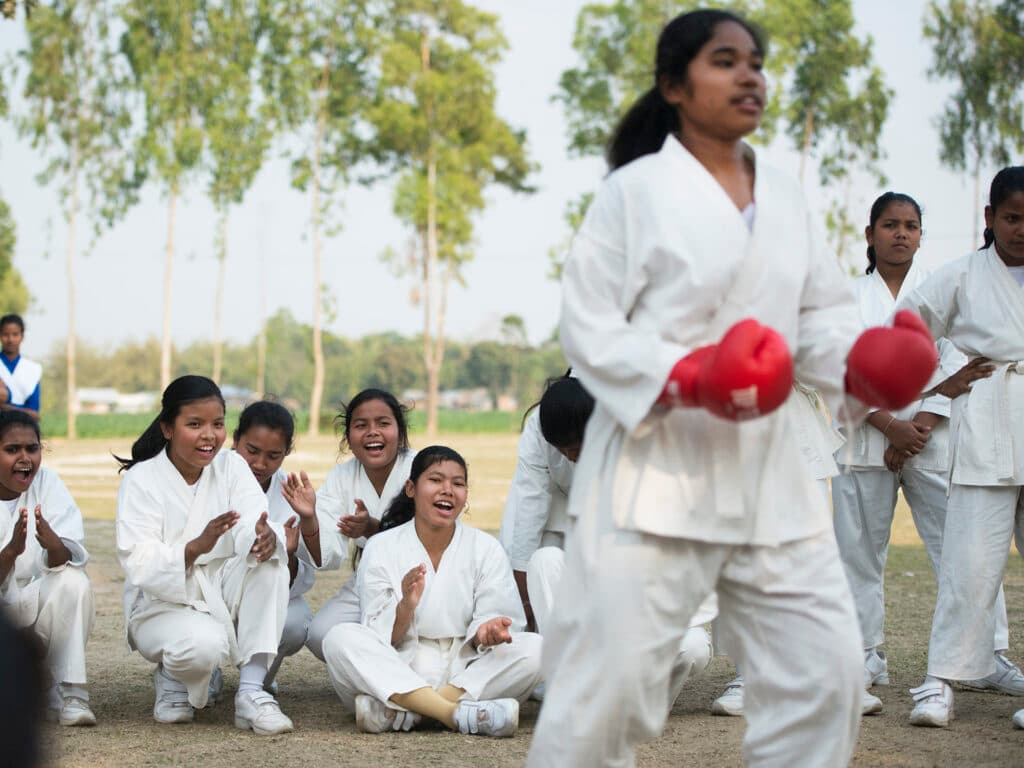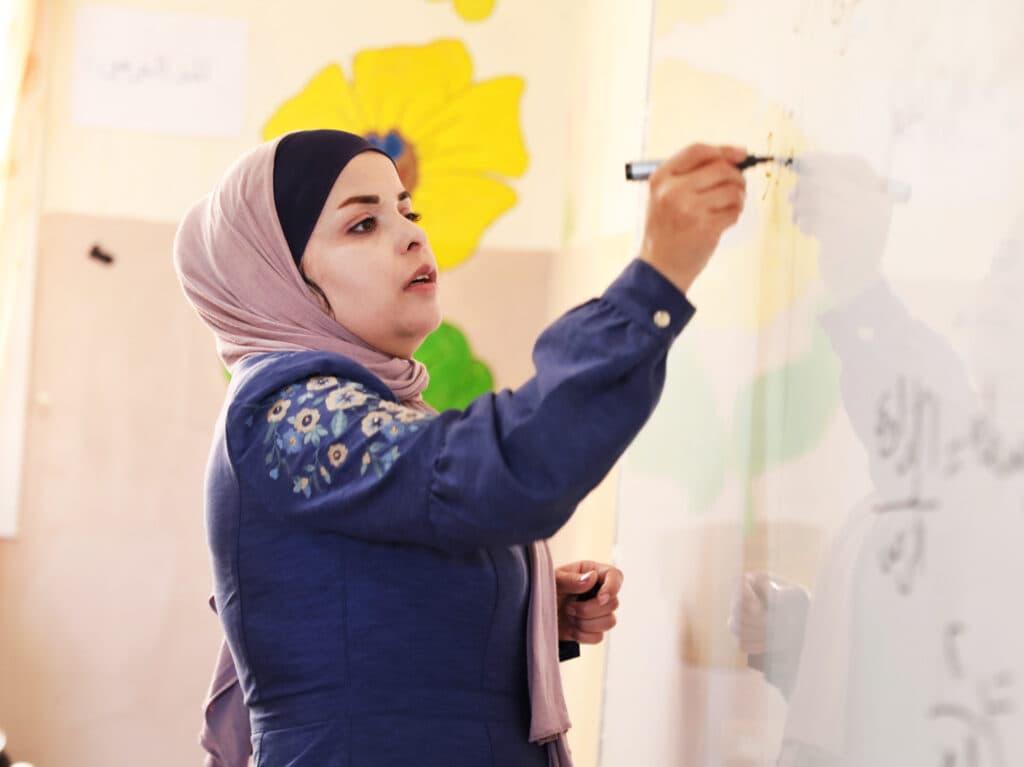Institutional Donors
Diakonia has several institutional donors. Its major share of development grants comes from the Swedish International Development Cooperation Agency (Sida) and the Swedish Ministry of Foreign Affairs, through Swedish embassies.
Sida and the Swedish Ministry of Foreign Affairs
The major share of our development grants comes from Sida (the Swedish International Development Cooperation Agency) and the Swedish Ministry of Foreign Affairs. In 2017, Swedish government sources contributed grants totaling SEK 372 million, which constituted 73 percent of Diakonia’s annual turnover of SEK 506 million. About one third came from Sida’s CSO framework appropriation and about two fifths from Swedish embassies.
Funds are also contributed from other Sida departments; e.g. the units for Humanitarian affairs as well as for Democracy and Human rights, though these funds are normally applied for and managed in close dialogue with Swedish Embassies in Sweden’s bilateral cooperation countries. Diakonia run large scale programmes for gender, democracy, governance, social economic justice, resilience and human rights funded by the Swedish Embassies in the DRC, Mozambique, Uganda, Zambia, Kenya, Zimbabwe, Mali, Burkina Faso, Cambodia, Colombia, Bolivia, and Guatemala.
We also coordinate humanitarian programs funded by Sida and the Swedish government in Palestine as well as a regional program on tax justice and local resource mobilization in Africa.
EuropeAid (DEVCO) and the EU delegations
In the countries where Diakonia and our partners work, we strive for joint dialogue with the EU delegations about ongoing projects, future development challenges, as well as on the CSO roadmaps for the country at hand.
The EU delegations are part of the European External Action Service (EEAS) and have delegated authority to manage EU’s development cooperation funds; where these funds normally are contributed from different EU instruments and programs.
Examples of EU instruments where Diakonia receive and have received funds are; the European Instrument for Democracy and Human Rights, the European Neighbourhood Instrument, the Development Cooperation Instrument (including sub-programs such as the CSO program and Global Public Goods and Challenges).
New projects are normally applied for through competitive multi-country call for proposals released by EuropeAid (DEVCO) in Brussels, or through in-country calls released by the EU delegations in each country.
Diakonia has implemented and coordinated EU funded projects in all regions where we work together with local partners (e.g. in Europe, Lebanon, Palestine, Bangladesh, Cambodia, Burkina Faso, Kenya, Uganda, Zambia, Somalia, Bolivia, Nicaragua, Honduras, Guatemala, Colombia, Peru, and Paraguay).
UNICEF (United Nations Children’s Fund)
In Burkina Faso, Diakonia coordinates a large donor basket fund for financial support and technical capacity building to local civil society organizations working with gender equality. This grant has been implemented and coordinated in three different periods 2012-2019.
Swiss Development Cooperation Agency (SDC)
Since 2012, Diakonia has received funding from the Swiss Development Cooperation Agency for our work with the International Humanitarian Law Resource Centre (IHRLC) and local partners in Palestine and Israel. Diakonia has also received a grant from SDC for our work with the Election preparation and civic education program (PAPE) in Burkina Faso 2015-2017.
The Netherlands Government
During 2016-2019, Diakonia receives funding from the Netherlands Government for our work with the International Humanitarian Law Centre (IHLRC) and local partners in Palestine and Israel.
Swedish Postcode Lottery
Through a base program partnership, Diakonia receives funding from the Swedish Postcode Lottery for collaboration with local partners in our program countries, but also through larger special projects calls where we can apply for funding jointly with other Swedish or international civil society organizations. Such special projects have been won and implemented in Myanmar, and together with We Effect in Central America, with Save the Children in the Middle East and North Africa, and with ECPAT in Thailand.
Swedish Radiohjälpen (Världens Barn, Music Aid, Emergency Aid)
Diakonia takes part in the annual TV-based campaign arranged by Radiohjälpen for “Världens Barn” (Children of the World), from which Diakonia receives funding for support to our local partners work in relation to the rights of the Child and for youth around the world.
We can also apply for project support from “Musikhjälpen” (Music Aid), although this support is more short-term (18-24 months), and where the thematic area of work tends to change from year to year.
When emergencies strike in our partner countries, Diakonia can also apply for emergency support from Radiohjälpen, normally around SEK 1,0 million.
The Norwegian Association of Disabled (NAD)
The Norwegian Association of Disabled is a non-governmental organization and Diakonia partner working to ensure the respect and fulfillment of the rights of disabled people. This long-term partner organization supports and collaborates with Diakonia in strengthening our local partners’ rights-based work with community based rehabilitation in Palestine.
Church of Sweden
Since 2014, we have a close partnership with Church of Sweden where we have applied jointly to ECHO for a selected number of countries based on their country strategies and humanitarian contingency plans. We have also applied jointly with Church of Sweden for Sida’s Humanitarian frame support, as well as received own collected funds from Church of Sweden for our ACT Appeals (see under Act Alliance).
ACT Alliance (Action by Churches Together)
Being a member of the international ACT Alliance, Diakonia has received funding and can appeal for future funds under the ACT appeal instrument for humanitarian emergencies. So far, Diakonia has participated and received funding from ACT sister organizations and other donors in emergency appeals for Burkina Faso, Somalia, Myanmar, and Bangladesh. We have also channeled funding to ACT sister organizations for other emergencies in Africa and Asia.
Previous institutional donors:
United Nations Development Program (UNDP): In 2012-2013, Diakonia received a grant from UNDP in support of the International Humanitarian Law Resource Centre in Jerusalem for information work about International Humanitarian Law and the Israel/Palestine conflict.
European Development Fund (EDF): Diakonia has applied and received grants from the 9th and 10th European development funds for its development work with partners in Somalia and in Uganda. The European Development Fund is a funding instrument for the African, Caribbean, and Pacific (ACP) countries, which is funded not through the EU budget, but through direct pledges and contributions from EU member states.
Norwegian Ministry of Foreign Affairs and Norad: During 2009-2014, Diakonia received funding from the Royal Norwegian Embassy in Sri Lanka for work with capacity-building of local civil society organizations and human rights. This support was phased out in 2014, as the Norwegian government ended its bilateral cooperation with Sri Lanka.
ECHO (European Commission Humanitarian office): Before 2005, Diakonia received grants from ECHO for humanitarian projects together with local partners. Since 2005 Diakonia has not been involved with ECHO as a framework partner. In 2018, Diakonia applied for a new framework partnership agreement with ECHO, which is in process.
Nordic Development Fund/Nordic Climate Facility: During 2016-2018 Diakonia received funding for a project with local partners in Bolivia, to implement a participatory strategy of adaptation and mitigation to the effects of climate change in, with emphasis on a green farming economy in larger municipalities in Bolivia.
Danida and the Danish Ministry of Foreign Affairs: In Burkina Faso during 2014-2016, Diakonia received a grant from Danida (Danish International Development Agency) for coordinating the Danish country portfolio for support to civil society. In 2015-2016, we also received support for the Election preparation and civic education programme in Burkina Faso.
The French Government: In 2012, Diakonia received a small grant from the French government for our work with the International Humanitarian Law Resource Centre (IHRLC) and local partners in Palestine and Israel. During 2015-2016, we received support from the French Embassy for the Election preparation and civic education program in Burkina Faso.



